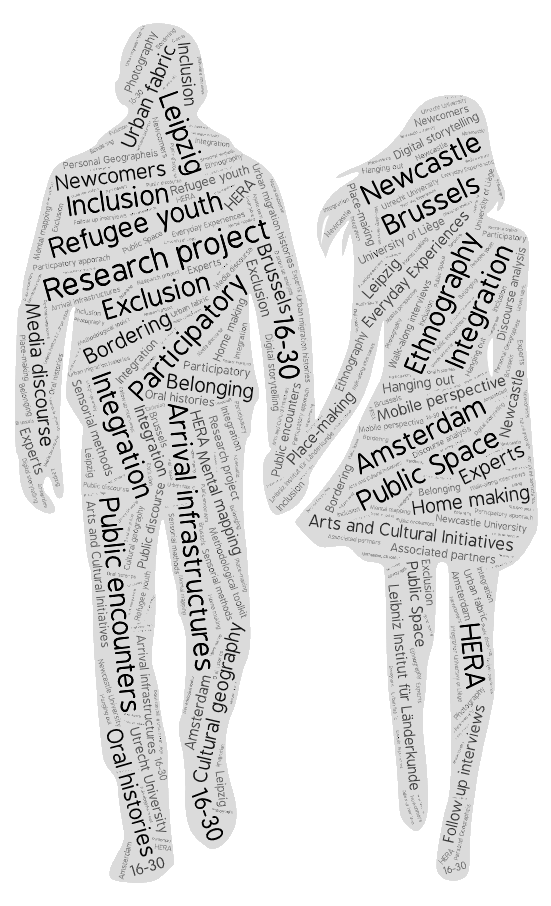About
A research project on the everyday experiences of young refugees and asylum seekers in public spaces
Refugee youth and young asylum seekers often find themselves in precarious positions: insecure housing, lack of social networks and employment restrictions, coupled with a lack of money. Many occupy the public spaces of cities and towns where they seek refuge. Their presence in these spaces has been strongly problematized in European immigration debates. There has, by contrast, been far less debate on how young refugees can contribute their own histories, voices and agencies to the development of convivial public spaces and to what extent this can enhance their integration and participation in society.
In many European cities, it is often arts and cultural initiatives that provide a platform for refugee and migrant voices, playing an influential role in their encounters with public space and other people. This study identifies the importance of these initiatives and uses them as the entry-point to researching the personal geographies of young refugees and asylum seekers in four European cities, mapping their migration histories, exploring their post-arrival experiences and asking how their place-making and artistic practices contribute to the transformation of urban public space.
The research focuses on the everyday experiences of refugee youth in Newcastle (UK), Leipzig (Germany), Amsterdam (Netherlands) and Brussels (Belgium). The methodological approach is primarily qualitative and draws heavily upon the principles of participatory research. It includes extensive participatory observation in each of the localities. Refugee youth will be offered a suite of creative methods to choose from for tracing and representing their personal geographies. Whilst being attentive to the migration histories of our participants, we acknowledge the importance of understanding how these align with the particular urban histories of each city. This means that we analyze the discursive constructions and representations of refugee youth in the local media as well.
The project runs from May 2019-May 2022. The output of the project will be published on this website.
The project is sponsored by HERA (Humanities in the European Research Area).







